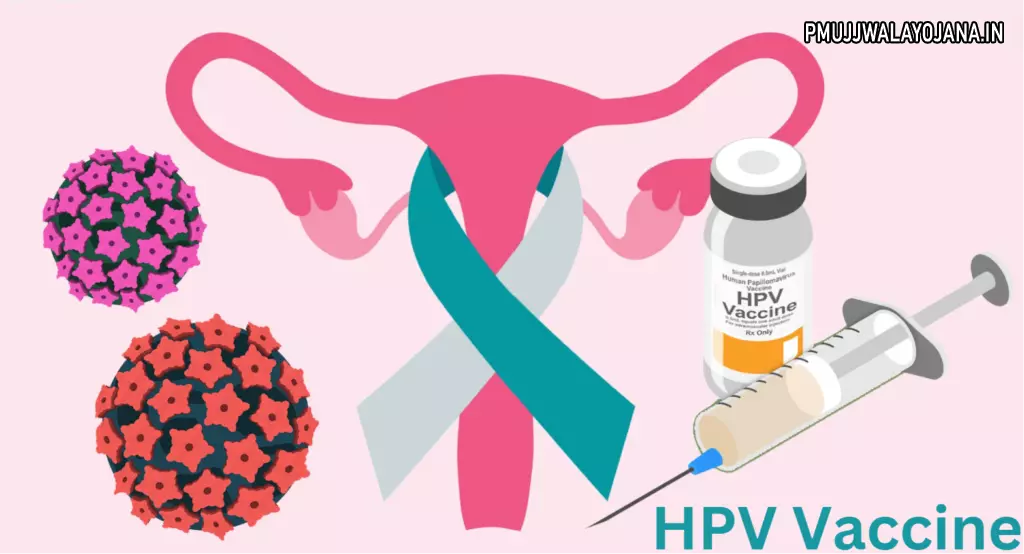HPV Vaccine for Cervical Cancer in India – What You Need to Know
The Indian government plans to include the HPV (Human Papillomavirus) vaccine in the national immunisation schedule starting in 2025. Girls aged 9 to 14 will be given this vaccine to protect against cervical cancer. Specifically, girls will get the HPV vaccine at nine years old as part of their regular immunisations. The Cervavac vaccine, made in India by the Serum Institute, will be used for this campaign. Studies, including those published in the Lancet, show that this vaccine works as well as other common HPV vaccines.
Currently, the quadrivalent HPV vaccine costs around Rs 2,000 per dose in the Indian market, while other HPV vaccines protecting against the four most common HPV types are priced around Rs 4,000 per dose. This article explains why the HPV vaccine is important, how it works, its benefits, the right age groups for vaccination, and other important details.

Understanding HPV Vaccine for Cervical Cancer
The HPV vaccine is a series of shots that protect you from HPV infections. HPV is a common virus spread mostly through skin-to-skin contact during sexual activity. There are about 40 types of HPV that can spread this way. Worldwide, about 80% of sexually active people get infected with HPV at some time.
Usually, a healthy immune system can fight off viruses. But some HPV infections stay in the body and may lead to cancers, especially cervical and vaginal cancers. HPV can also cause genital warts. So, getting vaccinated is a safe and effective way to avoid these health problems.
Why Is HPV Vaccination Important?
The vaccine protects against HPV types that can cause genital warts and cancers. Remember, vaccination cannot treat infections you already have but helps stop new infections. It protects against both low-risk HPV types that cause warts and high-risk types linked to cancers.
How Does the HPV Vaccine Work?
Instead of using the actual virus, the vaccine has a harmless version that trains your immune system to make antibodies. These antibodies help stop infection if you come into contact with HPV later.
Benefits of HPV Vaccination
- Reduces the chance of genital warts and HPV-related cancers for those who are or will be sexually active.
- Since its introduction in 2006, HPV vaccination has greatly lowered cervical cancer rates.
- Vaccinating males also helps protect their partners and lowers the risk of HPV-related cancers like throat, penile, and anal cancers.
- Getting vaccinated before sexual activity is the best way to protect yourself against HPV.
- The vaccine is safe for all genders and recommended for a wide age range.
Who Should Get the HPV Vaccine?
- All boys and girls should get vaccinated before they start sexual activity. The CDC recommends vaccination between ages 11 and 12, but it can start as early as 9 years old.
- Adults up to 26 years should also get vaccinated if they haven’t already.
- Adults aged 27 to 45 might benefit from vaccination based on individual risk, following FDA advice.
Who Should Avoid the HPV Vaccine?
- Pregnant women are advised to wait until after delivery to get vaccinated because there’s limited safety data during pregnancy.
- Anyone who had a severe allergic reaction to a previous HPV vaccine dose or its ingredients should avoid it.
- People with moderate or severe illness should talk to a doctor before vaccination.
Possible Side Effects
The HPV vaccine is generally safe, with mild side effects such as:
- Pain, redness, or swelling where the injection was given
- Dizziness or fainting (more common in teenagers)
- Fever
- Feeling tired or having a headache
- Muscle or joint pain
- Nausea
Where to Get the HPV Vaccine in India?
HPV vaccines are available at clinics, community health centres, school health programmes, and government hospitals. You can also contact your state health department for information about vaccination centres near you.
Government Plans to Provide HPV Vaccine
The Indian government is arranging to buy the vaccine while training healthcare workers across states on how to give the vaccine. Workshops have been held to make sure vaccine administration runs smoothly at centres across the country. Communication plans are also in place to educate people and reduce doubts or fears about the vaccine.
The National Technical Advisory Group on Immunisation (NTAGI) has recommended studies by the Indian Council of Medical Research (ICMR) to check how well a single dose of the HPV vaccine works in the 9-15 age group. The World Health Organisation (WHO) supports using a single dose based on evidence it offers strong protection, although normally two doses are given.
Evidence Supporting HPV Vaccine
Since HPV vaccine programmes started in over 100 countries, cervical cancer cases have gone down. Research from Sweden and England in recent years shows that HPV vaccination during adolescence lowers cervical cancer risk by more than 85% by age 30. This proves the HPV vaccine is a strong tool to help prevent cervical cancer.